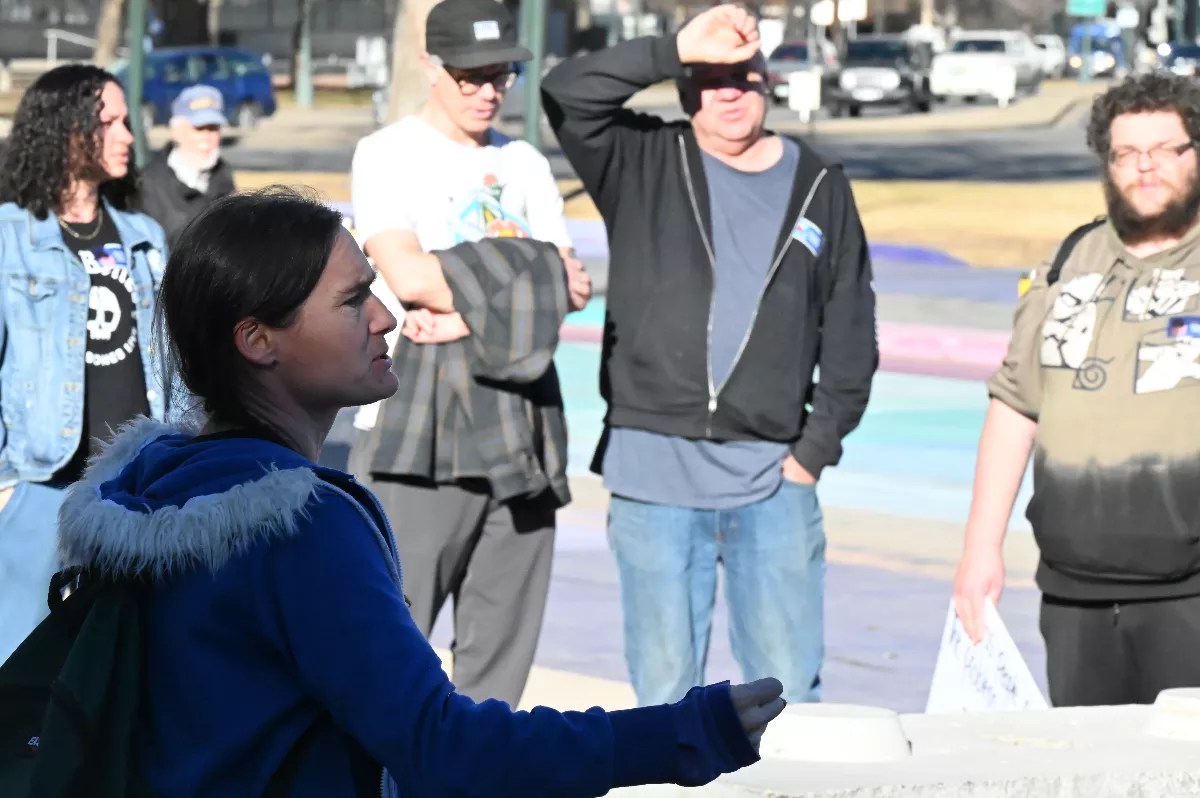
Bennito L. Kelty

Audio By Carbonatix
Update on February 2: Mayor Mike Johnston has vetoed the No Freezing Sweeps ordinance; it will go back before Denver City Council for a possible veto override on February 12.
Denver’s first cold snap of 2024 had just ended the week before when the conversation got very heated on Monday, January 29, as Denver City Council debated whether to ban sweeps on freezing cold days.
Council settled it with a 7-6 vote that prohibits city agencies and departments from removing encampments when the weather outside is predicted to be lower than 32 degrees. The new “No Freezing Sweeps” law, as activists call it, will stop the Denver Police Department, Department of Transportation & Infrastructure and Department of Public Health & Environment from enforcing the city’s camping ban when the weather is below 32 degrees.
The bill had been making its way to council since it was introduced in the Safety and Housing Committee on December 20; before that, the committee heard from University of Colorado medical researcher Josh Barocas about the danger of moving people when the weather outside is below freezing.
“When people are involuntarily displaced without a place to go, they oftentimes are required or have to give up any amount of non-essential goods that they have,” Barocas told the committee. “We know that moving people, depending on how it occurs, people are less likely to take with them sleeping bags, clothing, etc. … That can exacerbate cold-weather injuries.”
Barocas also mentioned that the average cost of going to the hospital for cold-weather injuries – like frostbite, trench foot and chilblains – is about $3,000 per person, and that Denver taxpayers foot the bill for cold-weather injuries at a cost of between $5 million and $10 million a year.
Activists with the Housekeys Action Network (HAND) credit former councilmember Candi CdBaca with trying to pass the bill before she lost reelection for her seat in the June runoff; they were able to find a new backer in first-year councilwoman Sarah Parady, who represents the city at large.
“There are still myriad kinds of enforcement against people in one or two tents when it’s freezing outside; despite the mayor and his administration making amazing efforts to get people into shelter, sometimes that offer is lost in translation,” Parady says. “There are often still a handful of people left behind, and when it’s cold out, those people should still be given the option to stay where they are.”
Mayor Mike Johnston has stood firm in opposing the bill, with Angela Casias, his legislative director, saying “it would effectively repeal the camping ban for a third of the year, or approximately 120 days a year, which would be contrary to the will of Denver voters,” in a January 6 statement. Given opposition and requests for more information, council had postponed a final vote from January 16 to the meeting two weeks later.
“Mayor Johnston’s first priority is keeping Denverites safe and healthy,” says Jose Salas, deputy director of communications for the mayor’s office, in a January 29 statement. “We know that cold temperatures pose a serious danger to people living outdoors, and this proposal will limit the actions the city can take to keep people safe.”
Opposition also came from other councilmembers. “I don’t believe there’s anything compassionate about not moving people out of their tents in the freezing cold,” said Kevin Flynn, who represents District 2 in southwest Denver, during the January 29 meeting.
Council had amended the bill twice during its January 8 meeting. One amendment allows sweeps on days that are predicted to be freezing but only while the temperatures are still above 32 degrees. The second amendment specifies that city agencies can still move people indoors to shelters or offer medical services on below-freezing days. On January 29, council amended the bill twice more. According to Parady, it was to clear up language.
HAND rallied outside City Hall before the final vote. HAND activist Ana Lilith Gloom pointed to two sweeps during freezing temperatures: clearing migrant encampments by Speer Boulevard and Zuni Street on January 3, and at East 51st Avenue and Emerson Street on January 19, before the city ended its cold-weather shelter activation.
Denver will start making migrants leave shelters again on February 5, when its suspended length-of-stay policy kicks back in. More than 4,000 migrants were in Denver’s shelters on Monday, January 29.
Although the weather’s warm now and the sun was out during the rally, Gloom says that the bill still matters because Colorado’s weather is sure to turn cold soon.
“We’ve seen cold snaps in mid-May. This is Colorado,” Gloom notes. “We need this because we’re still going to get cold snaps, we’re still going to get snow, and we still obviously don’t have enough room to house people. ”